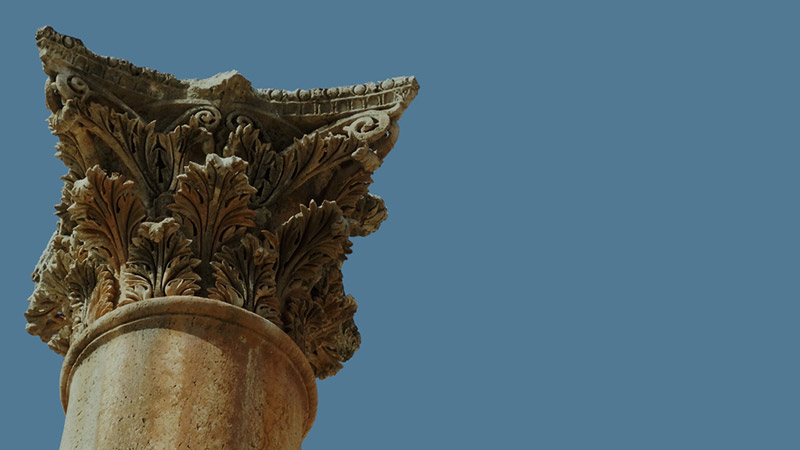More Results
Showing 12 of 302
Articles

The Salt of the Earth
The City of SardisLocated on Mount Tmolus in southern Turkey, the city of Sardis stood at the crossroads of Asia Minor, the most prosperous, powerful, fertile, and pagan province of the entire Roman Empire. First-century Sardis had a unique blend ...
MORE
The Time Had Fully Come
Qumran - The SiteThe wilderness community of Qumran served as home for the Essenes, a Jewish sect existing in Jesus' day.Qumran served as a study site for the Essenes, a Jewish sect existing in Jesus' day. Located at the edge of the Judea Wilderne...
MOREEncyclopedia

The Philistines
The Old Testament frequently mentions the Philistines, a pagan people who clashed with God's children in the Promised Land. The Bible itself provides many interesting facts about Philistine culture, and archaeological discoveries have added to our...
MORE
The Road to Jerusalem
The roads leading to Jerusalem through the Judea Wilderness traverse some barren, desolate, and rugged areas. This path following a wadi is one such trail. Seeing this path can help us understand the parable Jesus told of a man who went down to Je...
MORE
The Sea and the Abyss
The Sea of Galilee is beautiful, but its calm, peaceful setting does not present a complete picture of ancient people's feelings toward it: Many biblical images related to the sea had very negative connotations.Jews were not seafarers; they were d...
MORE
The Sea of Galilee
Rabbis of ancient times said, "The Lord has created seven seas, but the Sea of Galilee is his delight." Anyone who sees the Sea of Galilee understands this statement: The blue water, set against a green and brown background of surroundin...
MORE
The Shephelah
Shephelah is a Hebrew word meaning "low" and is usually translated "lowlands" or "foothills." The term refers to a twelve to fifteen-mile wide region in Judea, comprised of foothills that are located between the coast...
MORE
The Temple of Apollo in the Hierapolis
Located on the main street between the theater and a sacred pool, this forty-by-sixty-foot temple was dedicated to the supposed god of light, Apollo. The entrance faced west and was approached by a broad flight of stairs.Beneath the Temple of Apol...
MORE
The Temple of Domitian
Built on the slope of the hill south of Ephesus and extending into the center of the city, this prominent temple could be seen from nearly everywhere in Ephesus, including the land and harbor entrances. The Ephesians, who built it to honor their e...
MORE
The Theater at Beth Shean
This spectacular theater was built during the Roman period in the Decapolis city of Beth Shean, known also by its Greek name, Scythopolis. It was more than 360 feet in diameter and seated over 7,000 people. As seen here, one tier of seats remains....
MORE
The Theater at Caesarea
Herods' love of Hellenistic culture and his desire to introduce it to the Jewish nation is illustrated clearly by the theater at Caesarea. Apparently, this structure was built outside the city because its obscene and bawdy performances may have cr...
MORE
The Theater at Ephesus
In the world of the early believers, the theater was a significant institution for communicating the Hellenistic view of the world. Every major city in the Roman world had a theater, and the theater in Ephesus was spectacular. The Greek king Lysim...
MORE

















